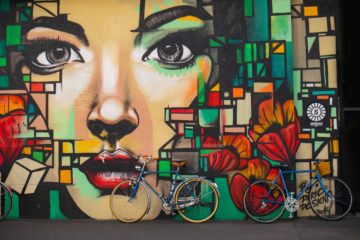Learning from “#unexcited. Talking about sexuality”…
This blog article was contributed by our partner “Verein für Männer- und Geschlechterthemen” (Autor Oliver Posch)”.
Over a period of two years the Institute for Masculinity Research and Gender Studies , the research department of the Association for Men and Gender Issues Styria (VMG), accompanied the project “#unexcited. Talking about sexuality” as evaluator. It was an enlightening time. We want to use this blog post to report how the project partners were dealing with challenges in an unexcited, calm way, often turning a supposed disadvantage into an important advantage for #unexcited.
The first challenge concerns communication and the very limited time together in the team at transnational meetings. It quickly became clear that three transnational meetings (kick-off meeting in Graz in May 2018, second transnational meeting in Rome in January 2019 and third transnational meeting in Lisbon in October 2019) were not enough time for communication in the team. Therefore, an extra transnational meeting in Grodzisk Mazowiecki in February 2020 was implemented. But the even bigger milestone in facing the lack of possible time together was the implementation of the monthly online meeting. It is clear that in terms of awareness, an online meeting cannot compete with a face-to-face transnational meeting, but in terms of efficiency and the use of limited financial resources, the online meeting allowed regularly contact, an exchange of information and an unexcited communication between the partners.
The second challenge was the diversity of the different partner organizations. This means not only the different cultural but also different professional background. Some participants deal exclusively with sex education, others additionally. Some participants came from social work, others from education. The diversity of the group was great and challenging. But instead of seeing that as a possible disadvantage, the team faced this circumstance in an unexcited way, by implementing the ‘Salad Bowl’ at one of the transnational meetings. The salad bowl is a metaphor for ‘Diversity in Unity’, not mixing all ingredients into a common slush, instead working with the diversity of the group, turning it into an advantage for the project and receiving all ingredients in their unique way. The ‘salad bowl’ includes a lot of perspectives on the field of sex pedagogue instead of level down the ‘European perspective’ on sex pedagogue to a common ground. Therefore, lots of needs are met with #unexcited. How diversity can be seen as an advantage rather as a disadvantage can be taken from the 3rd questionnaire of the evaluation with the following quotation:
| “This partner group is very diverse and an example that diversity is very positive in terms of achievement and well-being. I’m very happy to be part I fell [sic!] very well.” |
The third challenge was the task of introducing a ‘Safe Space’, meaning an environment in which everyone feels so comfortable that they dare to overcome their own obstacles. Here is an example from #unexcited to illustrate how a save space can be constructed: At the third transnational meeting in Lisbon there was an exercise to which the members were invited to work in country-mixed up teams. Because of the fear of language barriers this was firstly rejected. Other members of the group reacted not in a judging way instead accepting this wish not to mix up. This acceptance of the group was leading to a save space, where fears are respected. This respect led to trust in the group and enabled to overcome this fear. Later in the meeting country-mixed up teams were possible. This ‘Save Space’ was not always given in the process of #unexcited. But if so, meaning to treat each other in an unexcited way by acceptance of barriers or obstacles of the other, this helped to construct trust and therefore a ‘Save Space’.
The fourth and at this point last challenge to be presented was the handling of political change and hostility by political players. At each transnational meeting the possibility was given to talk about the political situation concerning sexual education in each home country. Lil* for instance reported about their way to handle political change: For a certain period of time it was challenging to do sexual education as an external organization in schools in Austria. Lil* reacted flexible on this challenge investing more time in professional trainings for teachers concerning sexual education. Although this situation was not considered as ideal, it was better to handle this situation in an unexcited way doing something instead of fainting completely doing nothing. This is an example of how to handle political change in an unexcited way, but lil* also provides a paper about hostility, which was created in the course of #unexcited. One calm, unexcited way to face hostility is to exchange with organizations, who sadly have already experience with this challenge. “Sexual Education is political: 7 Tips for Dealing with Hostility” provides an unexcited way of how to deal with the big challenge of hostility.
This is only a small section of the results of the evaluation of “#unexcited. Talking about sexuality”, but it gives an idea of how to deal with certain challenges in an unexcited way and what you can learn (next to other things) from #unexcited for future projects and processes.


